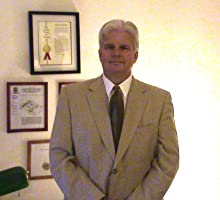“Wishing to be perfectly candid, I would not tell a Christian who decides to go against my advice and drink small amounts of alcohol, maybe in his own home, that he has sinned with the first drink, though I would tell him he runs a greater risk of sinning.”
Brother Edwards suggests a contrast between his “advice” and what is “sinful”, that “the first drink” of alcohol, in one’s home (or dorm?) is not sinful, but risky of causing sin later on, but not at the point of alcohol consumption. I wonder how many young men at FHU will not attempt to justify “small amounts” of alcohol in their own room? When I was a student at FHU in the 1950’s, one preacher student was expelled for having a few “small drinks.” How many of such young people might well become alcoholics because of brother Edwards’ statement? No one knows! Here is my reply to bro. Edwards thoughtless remarks.
How many “small drinks” does it take to become intoxicated? One or two or four? If it takes two or more, how close together do they have to be before “intoxication?” If two consecutive drinks are intoxication, then one drink would be “half” intoxication, or a vital first part of intoxication. What if one takes several “small amounts” within an hour, or short period of time and gets heavily intoxicated? Is that not sinful? Even one (maybe the “first”) drink is intoxicating. Is not intoxication (drunkenness) sinful? Webster says an intoxicant is “something that intoxicates, specifically (a) a drug that intoxicates. (b) alcoholic liquor.” A “toxicant” is a poison. “Drunk” and “intoxicated’ are synonymous. Webster’s Thesaurus lists “drunken, high, inebriated, intoxicated, tight, tipsy” as being all the same. One’s “first drink”, and any “first drinks” after that, are always stimulating or exhilarating, especially until there have been so many “first drinks” through the years that it takes more than another “first drink” to become tipsy. When one drinks “small amounts of alcohol”, he has an intoxicant in him, or is “intoxicated.” A “toxicant” (poison) is “in” him. Every swallow of alcohol is a swallow of poison. It may not kill the body instantly, but it poisons the brain and the soul. What is the point in drinking, unless there is some stimulation (intoxication)? And, when that occurs, the guilt of “drunkenness” has taken place. Isn’t that sinful?
Habakkuk 2:15 pronounces a “woe” upon drinking. God said through the prophet, “Woe to him that gives drink to his neighbor…to make him drunk”, and then in verse 16 He extends the “woe” (or curse) upon the one who gives the drink in that he “also—drinks.” The “woe” is upon the drinker and the one he makes drunk—both now drinkers, or drunk.
Bro. Edwards’ implication is that he would “advise” people not to drink small amounts of alcohol, but if they do they “risk sinning” (which they haven’t done in drinking small amounts). The argument is that if something is sinful, we should avoid the things that might lead us to sinful actions. True, there are some sins we can commit, but there are some “sinful” things that might lead us to them, that should also be avoided. For instance, young people should avoid “heavy petting”, because it might well lead to fornication. Well, “heavy petting” is lasciviousness, which is already condemned, as well as fornication. So, some sins should be avoided because they may lead to sins of worse consequences in life, but all sin should be avoided.
How many bites of the forbidden fruit did Eve have to take before she sinned? Would Dr. Edwards have justified her in taking the first bite as not being sinful, but that it might lead her to sin at a later time? Perhaps bro. Edwards has not had to deal with the problem of alcoholism in his family, or he would not be so soft on the use of poison.
Were Paul, Peter and John just giving advice when they taught believers to “abstain” from fleshly lusts (Gal. 5:19-21; 1 Pet. 2:11; 1 John 2:15-17)? Paul also wrote that we are to make “no provision” for the flesh, “to fulfill the lusts thereof” (Rom. 13:14)? If taking a few drinks in the home or dorm does not “provide” occasion for even further drinking and heavy intoxication, what would provide for such? What about an “alcoholic”, who knows that even “one drink” of alcohol will set him back on the road to ruin, would bro. Edwards still say a few small drinks is not sinful?
Finally, I would like to present some analogies. First, speaking of fornication or “illicit sexual relations,” can sexual action be started without fornication being committed? What difference is there in the first minute of sexual activity and the completion a few minutes later? Second, the starting of an automobile. How can one start the engine of his car without it running? Would one conclude that he can “start” the car without causing the engine to run? The only way to keep the engine from running is to not start the car, for when the car is started, the engine is running. It is impossible to start the engine without the engine running.
So it is with intoxication. When the first drink is taken, intoxication has begun. Brother Edwards used the expression, “He has sinned with the first drink”, but those words were preceded with words that he would “not tell” that to a Christian as long as he drinks in small amounts in his own home. Preposterous!! Sometimes when a drunk is seen, the remark is made, “He had one drink too many.” TRUE, but which ONE? The last or the first? Had he never taken one drink, he would never have become a heavy drinker, or an alcoholic, to bring hurt and ruin on his family and loved ones.

